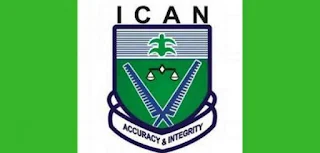Mutual Recognition Of Indigenous Professional Accounting Bodies In Nigeria
The accounting profession continues to thrive in Nigeria and the number of accountants employed at the professional level has risen strongly over the past decade. Chartered and qualified accountants are in short supply in the Nigerian labour market.
The economy of Nigeria is one of the fastest growing in the world, with the International Monetary Fund (IMF) projecting a growth of 9% in 2008 and 8.3% in 2009. So the future of the accounting profession seems to be dazzling and bright.
Nigeria is classified as the most populous country in Africa, the seventh most populous country in the world and the most populous country in the world in which the majority of the population is black. It is listed among the "Next Eleven" economies and is a member of the Commonwealth of Nations. The estimated population of Nigeria is 160 million people.
Comparing the Nigerian population over the number of qualified accountants practicing in Nigeria, there are clear indications that more accountants are essentially required to be trained and infused into the Nigerian economy.
There are three (3) Nigerian professional accounting bodies recognised by law namely; Institute of Chartered Accountants of Nigeria (ICAN), Association of National Accountants of Nigeria (ANAN) and Chartered Institute of Management of Nigeria (CIMA).
ICAN is the first and the most recognized Nigerian professional accounting body that was established in 1960 and as at 31st May, 2009, ICAN has more than over 27,000 members and 151,114 students on its Register. Whereas ANAN was founded on 1st January, 1979, incorporated on 28th September, 1983 and was finally chartered by Decree 76 of 1993 on 25th August, 1993. It has a total membership of 10,260 as at December 2007.
Perhaps one of the formidable newcomers to the professional accounting arena is CIMA-Nigeria. CIMA-Nigeria was founded in 1977, registered in 1985, and incorporated in 1989. The bill seeking to establish CIMA was finally passed by the Nigerian Senate on 4th November, 2010.
Another formidable Nigerian professional accounting body which has nationwide membership and outreach especially amongst civil servants is the Institute of Certified Public Accountants of Nigeria (ICPAN). ICPAN was established in May 1988. It became a body corporate on the 6th of May 1996, following its registration with the Corporate Affairs Commission. The bill seeking to establish ICPAN has not been passed into law.
The issue of mutual recognition and respect amongst indigenous professional accounting bodies in Nigeria and their foreign counterparts have not been equally balanced and fair. All Nigerian accounting bodies including ICAN, offers full membership to graduates of all six chartered British professional accounting bodies namely; The Institute of Chartered Accountants in England & Wales (ICAEW), The Institute of Chartered Accountants in Scotland (ICAS), The Institute of Chartered Accountants in Ireland (ICAI), The Association of Chartered Certified Accountants (ACCA), The Chartered Institute of Management Accountants, UK (CIMA) and The Chartered Institute of Public Finance and Accountancy (CIPFA) but unfortunately their foreign counterparts do not reciprocate the same gesture.
However, the indigenous accounting bodies qualifications maybe used as minimum requirement to register as students of these foreign bodies or some examinations could be exempted to be taken especially for ICAN members. But full memberships are not granted. Nevertheless, a mutual recognition agreement (MRA) between two or more bodies cannot be forced or compelled but is an international agreement by which two or more bodies agree to recognize one another's conformity assessments.
Mutual recognition agreements facilitate cross-border mobility by streamlining the process for qualified professionals with accounting credentials to become certified and licensed in each other's countries.
Currently, ICAN grants all members of the British professional accounting bodies and including other foreign bodies such as the American Institute of Certified Public Accountants (AICPA), the Canadian Institute of Chartered Accountants (CICA) and the Institute of Chartered Accountants of Ghana (ICAG), full membership after undergoing a special intensive course.
This arrangement may seem unfair and inequitable but absolutely lawful and justifiable. In 2008, ICAN and ACCA had signed a Memorandum of Understanding (MoU) on mutual cooperation. This led to first ICAN and ACCA bilateral meeting, which took place at the ICAN secretariat on 6th February, 2008. The ACCA team and the ICAN team both agreed to the terms of reference (ToR) of the Bilateral Committee as well as resolved to collaborate on a number of areas to develop the accountancy profession.
As well as review and where appropriate, work together to address common issues in the national, regional and international accountancy profession. However, this initiative did not materialize into a full mutual recognition.
Foreign accounting bodies like ACCA and CIMA-UK are increasing their membership drive in Nigeria to the detriment of ICAN, ANAN, CIMA (Nigeria) and ICPAN. The fact that the recognition granted to the foreign professional bodies by their Nigerian counterparts is not reciprocated has further reinforced the supremacy of such international professional accounting bodies. In Nigeria alone, ACCA and CIMA-UK maintain branch offices and have thousands of student members that pay expensive examination fees and subscriptions.
The credentials or qualifications of ICAN, ANAN, CIMA (Nigeria) and ICPAN are viewed as substandard and inferior to that of foreign professional accounting bodies. Employers of labour have not helped matters too; they continue to demand the services of chartered accountants from foreign professional accounting bodies. Several unemployed or partially employed graduates with Nigerian degrees have resulted to enrolling with these foreign professional accounting bodies to enhance their chances of securing good jobs, given that Nigerian and global employers are willing and ready to pay for such services.
Also, foreign professional accounting bodies such as ACCA and CIMA-UK has adapted its examinations to specific local conditions in a bid to ensure that its qualifications are both local and global. To thrash its competitors globally, ACCA also came up with a BSc degree in Applied Accounting awarded by Oxford Brooke University, UK granted in conjunction with the ACCA qualification. Also, Nigerian graduates with foreign accounting qualifications are not restricted to the Nigerian labour market but can compete on the global labour market.
In the United Kingdom, ACCA is one of the world's largest and fastest-growing accountancy bodies with 140,000 members and 404,000 affiliates and students in 170 countries (as at April 2010). ACCA is a founding member body of the Consultative Committee of Accountancy Bodies (CCAB) and the International Federation of Accountants (IFAC). The term 'Chartered' in ACCA qualification refers to the Royal Charter granted in 1974 by Her Majesty the Queen in the United Kingdom.
ACCA have mutual recognition with Certified General Accountants Association of Canada (CGA), Hong Kong Institute of Certified Public Accountants (HKICPA), Malaysian Institute of Certified Public Accountants (MICPA) and Institute of Certified Public Accountants of Singapore (ICPAS). However, The Institute of Chartered Accountants in England and Wales (ICAEW) was established by a Royal Charter in 1880. It has over 130,000 members.
ICAEW offer full membership recognition to full member of the Association of Chartered Certified Accountants (ACCA), Chartered Institute of Management Accountants (CIMA-UK), Chartered Institute of Public Finance and Accountancy (CIPFA), American Institute of Certified Public Accountants (AICPA), CPA Australia and Malaysian Institute of Certified Public Accountants (MICPA). Whereas the Chartered Institute of Management of UK (CIMA) emphasis is on developing the management accounting profession within the UK and worldwide.
CIMA is the largest management accounting body in the world, with more than 172,000 members and students in over 165 countries. CIMA was founded in 1919 as "The Institute of Cost and Works Accountants" (ICWA). CIMA have mutual recognition with full members of CPA Australia and CMA Canada.
Thus, indigenous professional accounting bodies like ICAN and ANAN have failed to positively impact the Nigerian economy but prefer to engage in the politics of monopoly and domination. Thus allowing foreign accounting bodies to promote, uphold, support, advance and develop accounting practices in relevant areas of accounting in Nigeria.
Not surprisingly, ICAN is the only Nigerian member of the International Federation of Accountants (IFAC) and has begun an effort to positively transform and reposition its institute to become a real international player in the professional accounting arena. ICAN has established districts in the UK and the USA and they have established faculties in relevant specialization of accounting, which all its members must belong to one or more faculties.
ICAN has even taken steps to partner with a private Nigerian university to facilitate an avenue where ICAN graduates without a degree can earn their degrees within two years. However, ANAN continues to maintain a tradition that serves as a distraction to prospective members who are non-accounting graduates.
All non-accounting graduates intending to earn the ANAN qualification must first undergo a conversion programme and most of their examinations are held at its headquarters in Jos. This tradition and practices are counterproductive and have little or no outcome on the advancement of accounting in Nigeria. Whereas foreign accounting bodies such as ACCA and CIMA accept the O-level qualifications as minimum entry requirement and their examinations are administered in hundreds of countries on the same day.
Indigenous professional accounting bodies can choose to chart the future of the accounting profession in Nigeria or can remain in the background while foreign bodies continue to pave the road for accountants in Nigeria and for Nigerians.
Roy Chikwem wrote from Ibadan, Nigeria. He is a member of the Institute of Certified Bankers of America (ICB) and Project Management Institute (PMI).














